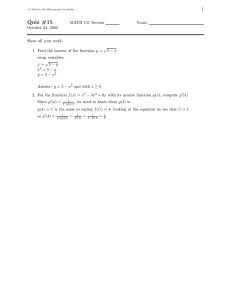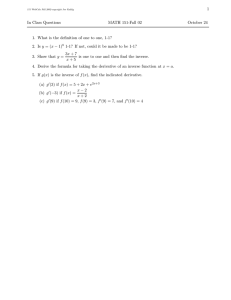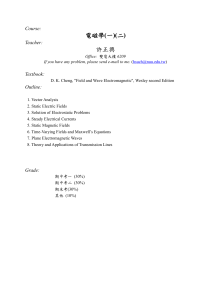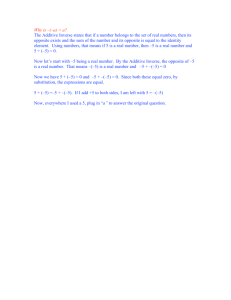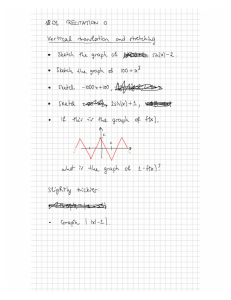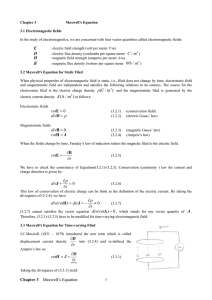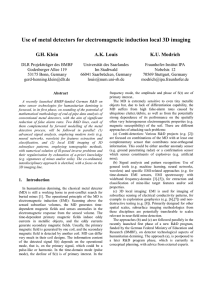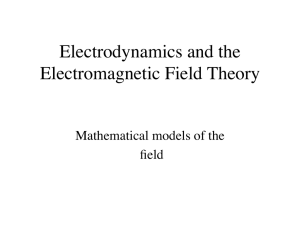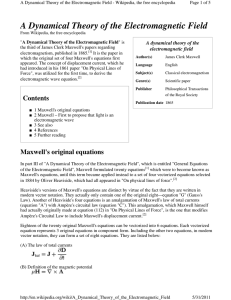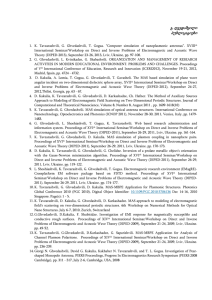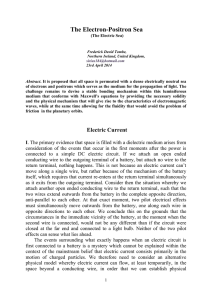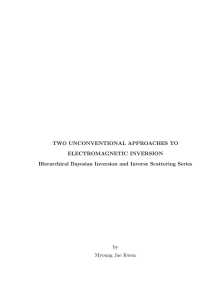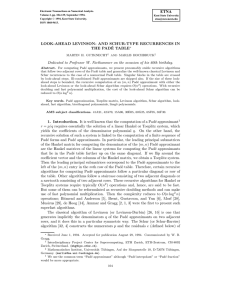Co-authors: Elena Cherkaev, Phil Wannamaker
advertisement
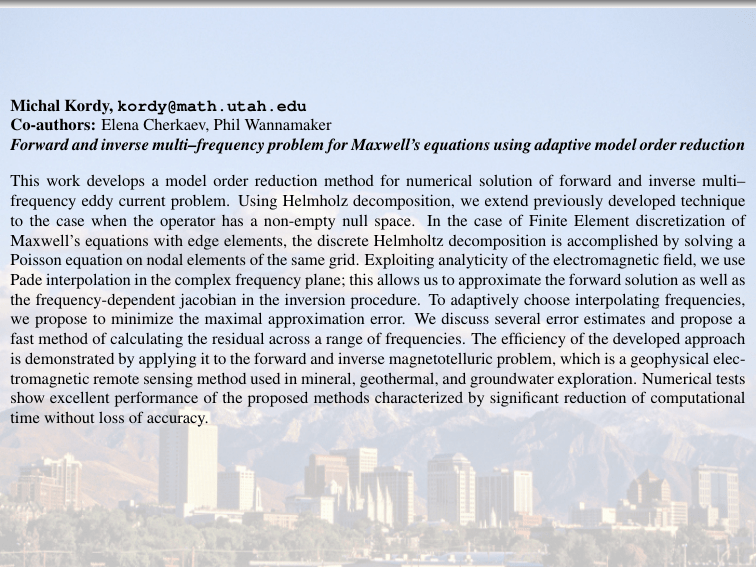
Michal Kordy, kordy@math.utah.edu Co-authors: Elena Cherkaev, Phil Wannamaker Forward and inverse multi–frequency problem for Maxwell’s equations using adaptive model order reduction This work develops a model order reduction method for numerical solution of forward and inverse multi– frequency eddy current problem. Using Helmholz decomposition, we extend previously developed technique to the case when the operator has a non-empty null space. In the case of Finite Element discretization of Maxwell’s equations with edge elements, the discrete Helmholtz decomposition is accomplished by solving a Poisson equation on nodal elements of the same grid. Exploiting analyticity of the electromagnetic field, we use Pade interpolation in the complex frequency plane; this allows us to approximate the forward solution as well as the frequency-dependent jacobian in the inversion procedure. To adaptively choose interpolating frequencies, we propose to minimize the maximal approximation error. We discuss several error estimates and propose a fast method of calculating the residual across a range of frequencies. The efficiency of the developed approach is demonstrated by applying it to the forward and inverse magnetotelluric problem, which is a geophysical electromagnetic remote sensing method used in mineral, geothermal, and groundwater exploration. Numerical tests show excellent performance of the proposed methods characterized by significant reduction of computational time without loss of accuracy.
